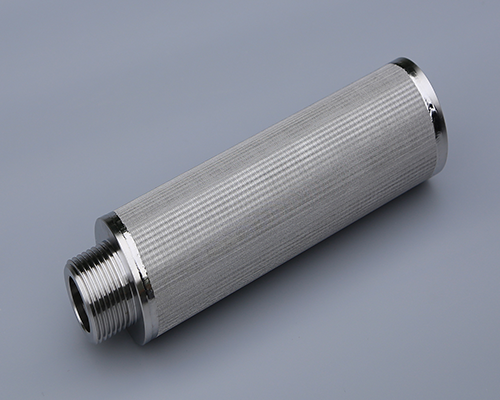Sintered metal filter elements are critical components in various industrial applications, ranging from chemical processing to aerospace engineering. These filters, known for their durability, high-temperature resistance, and precise filtration capabilities, play a pivotal role in ensuring the efficiency and safety of complex systems. However, the performance of these filters is heavily dependent on stringent quality inspection control processes.
Key Aspects of Quality Inspection Control
1. Material Verification: The first step in quality inspection is verifying the raw materials. The metal powders used in sintering must be of high purity and consistent particle size. Any impurities or inconsistencies can compromise the structural integrity and filtration efficiency of the final product.
2. Dimensional Accuracy: Sintered metal filter elements must adhere to precise dimensions to fit seamlessly into their designated systems. Advanced measuring tools, such as coordinate measuring machines (CMM), are employed to ensure that each filter element meets the exact dimensional specifications.
3. Porosity and Permeability Testing: The porosity and permeability of sintered metal filters are critical parameters that determine their filtration performance. Specialized testing equipment is used to measure these properties, ensuring that the filters can effectively separate contaminants while maintaining optimal flow rates.
4. Mechanical Strength Assessment: Sintered metal filters must withstand high pressures and mechanical stresses. Rigorous mechanical testing, including tensile and compressive strength tests, is conducted to ensure that the filters can endure the operational demands without deforming or failing.
5. Visual and Microscopic Inspection: Visual inspection helps identify surface defects, while microscopic examination reveals internal flaws that could affect performance. These inspections are crucial for detecting issues that might not be apparent through other testing methods.
Conclusion
Quality inspection control is indispensable in the production of sintered metal filter elements. By implementing comprehensive inspection protocols, manufacturers can guarantee that their filters deliver reliable performance, ensuring the safety and efficiency of the systems they serve. As industries continue to evolve, the importance of maintaining rigorous quality standards for sintered metal filters cannot be overstated.
AHT/ Hartong, Wire mesh Co., Ltd. as a manufacturer of wire mesh and filter products, can provide the required equipment and accessories, you can choose the right wire mesh and filter products according to your needs.
Post time: Sep-18-2024




